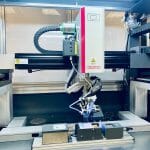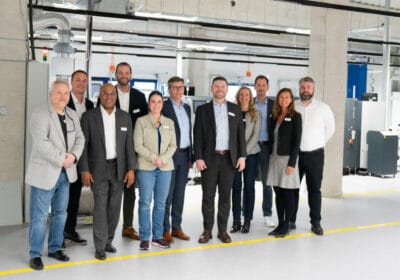~ Could a robot tax have a negative impact on UK manufacturing? ~
In 2017, amid fears that machines would replace human workers in the future, one of the world’s most automated nations, South Korea, introduced the world’s first robot tax. It is a contentious issue — Microsoft founder, Bill Gates has previously argued that to help fund social services and education, robots should be taxed at the same level as the people they replace. Here Sophie Hand, UK sales manager at automation parts supplier EU Automation, explains the negative impact that the robot tax could have on the manufacturing industry.
For the past ten years, the UK has had extremely poor productivity growth. Unlike previous recessions, the UK’s growth in productivity did not bounce back after 2009. In fact, it has struggled to remain positive at all. However, investment in robots could change this. A 2017 study by the Centre for Economics and Business Research found that a one-unit increase in robotics density is associated with a 0.04 per cent increase in labour productivity.
According to the International Federation of Robotics, the UK only has 71 robots for every 10,000 employees. This low number of robots could suggest that there is a bias towards labour over capital investment, which may have contributed to the productivity issue in the UK.
Daniel Mahoney, head of economic research at CPS, has previously suggested that going ahead with a robot tax in the UK would further discourage investment in capital and would be hugely damaging for the economy. He stated that, “…the country already suffers from a low capital-labour ratio, which is dampening productivity growth and holding back wage increases.”
Mahoney makes an interesting point. Automation is an important aspect of improving manufacturing productivity and retaining competitiveness in a global market. If businesses don’t automate, they will be left behind. This makes automation not just a business issue, but also a personal one, as it can result in job losses and will certainly affect the amount of salary increases that the business is able to make.
Slowing job creation
In his statement, Gates suggests that robots are taking jobs from humans. In fact, it’s quite the opposite. Using robots to carry out laborious, monotonous tasks frees up human workers to do bigger and better things. Robots can even create jobs as many careers in data science and programming are only available today because of the introduction of automation. This poses the question; does the UK want a manufacturing workforce that is only capable of repetitive tasks, or one that is evolving to meet future needs?
Rather than taxing robots, perhaps the manufacturing industry should focus on upskilling its workforce so that it can work in a more automated environment. The importance of upskilling was highlighted in the 2017 Made Smarter report, which called for a Commission to lead the upskilling of over one million industrial workers in the UK.
There is a range of emerging skills essential for employee success including software development, equipment troubleshooting, critical thinking, communication skills for collaborative work, manual dexterity and the ability to perform complex system tests. While I don’t agree that this upskilling should be funded by a tax on robots, a tech-savvy workforce is key if the UK is to improve its productivity growth.
Despite the common misconception, robots create work and increase productivity — taxing them would have a negative impact on the UK’s productivity and its position in the global market. Perhaps, rather than following in South Korea’s footsteps, we should take a more German approach to digitalisation by enabling our workforce to operate alongside robots in a productive setting.
For more information on global approaches to digitalisation, visit https://www.euautomation.com/4sight.






